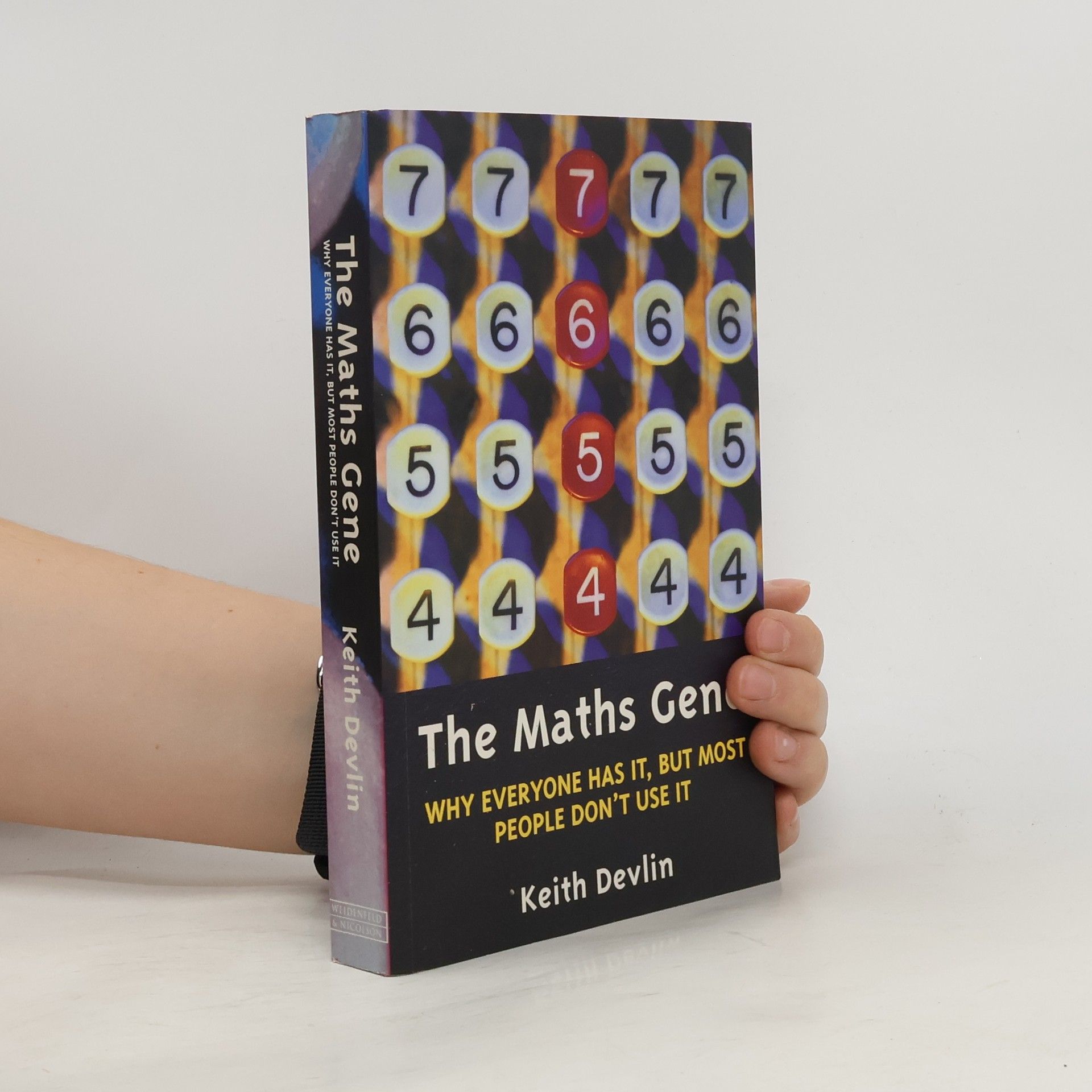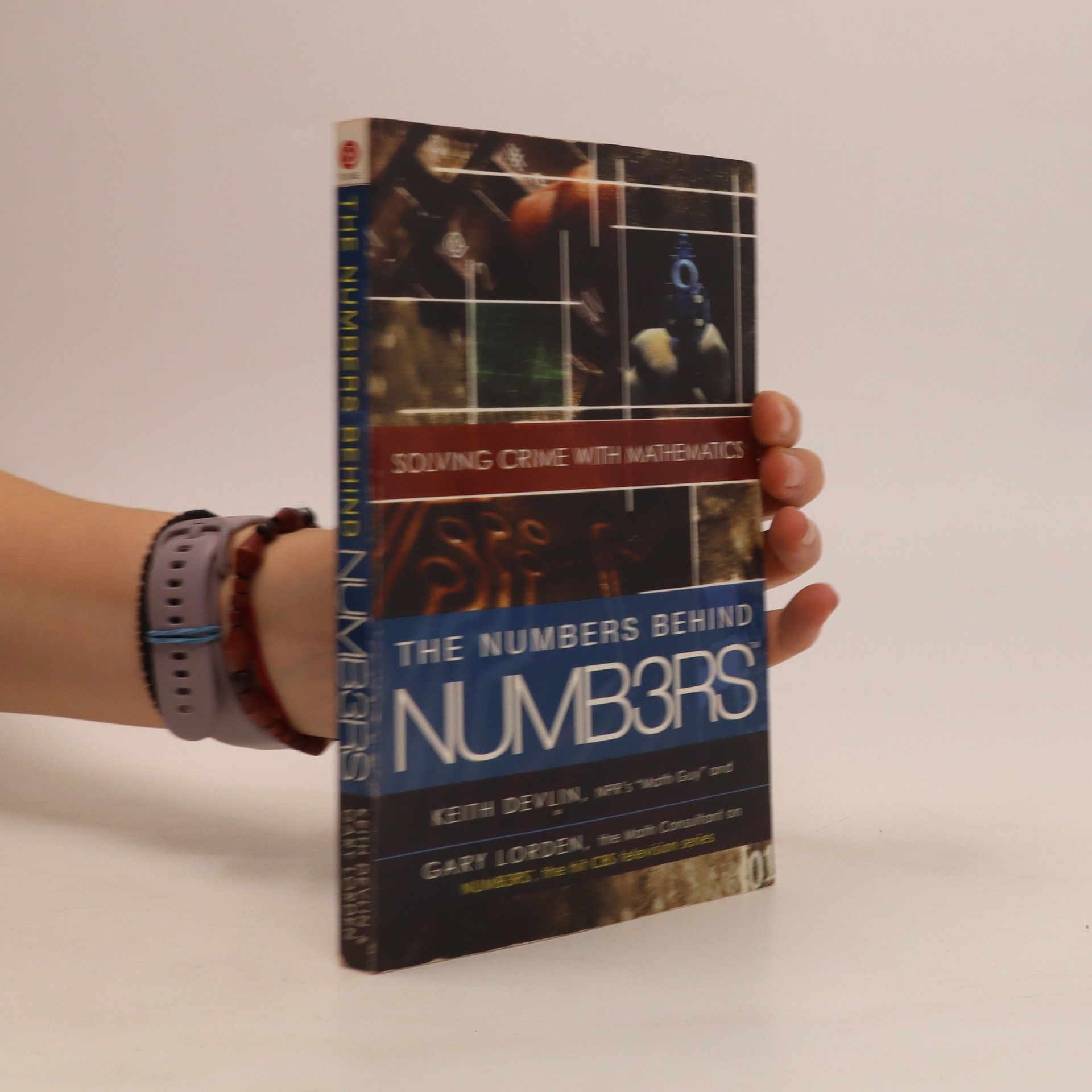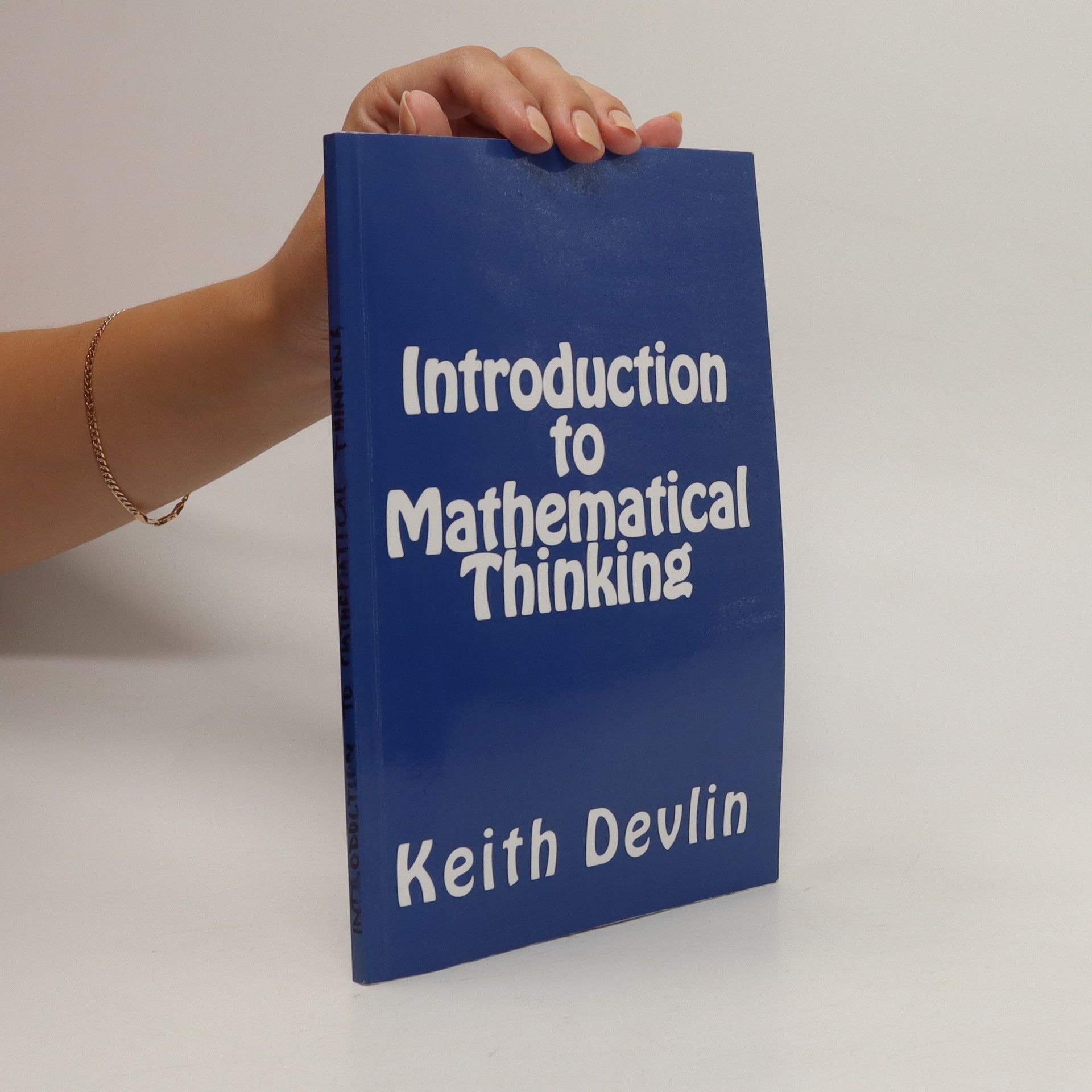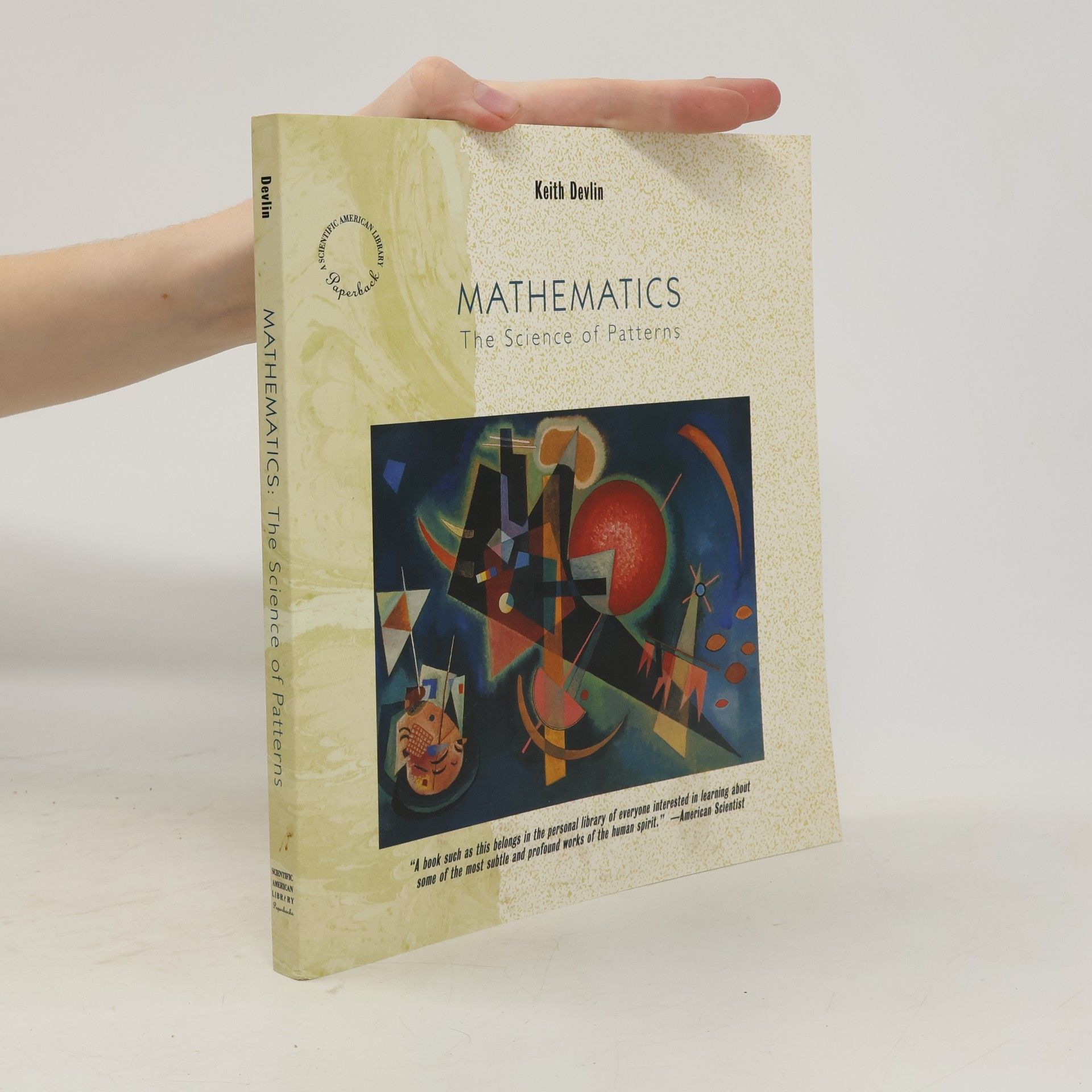Cryptography
- 320 pages
- 12 hours of reading
A nuts-and-bolts explanation of cryptography from a leading expert in information security.
Keith Devlin focuses on employing diverse media to teach and communicate mathematics. He also explores the design of information and reasoning systems for intelligence analysis. His research interests span information theory, models of reasoning, and mathematical cognition. Through his work, Devlin strives to make mathematics accessible to a broader audience by utilizing innovative communication approaches.






A nuts-and-bolts explanation of cryptography from a leading expert in information security.
Lässt sich die Zukunft vorhersagen, das Glück berechnen? Bis zur Mitte des 17. Jahrhunderts lautete die kategorische Antwort der Gelehrten: Nein. Doch dann erfanden Blaise Pascal, einer der berühmtesten Philosophen seiner Zeit, und Pierre Fermat, der genialste Mathematiker der Epoche, die Wahrscheinlichkeitsrechnung. Das Problem, über das sich Pascal und Fermat in einem Briefwechsel austauschten, hatte sich aus einem abgebrochenen Glücksspiel ergeben. Doch was sie dabei entdeckten, sollte unsere Ansicht über die Zukunft revolutionieren.
"Mathematical thinking is not the same as 'doing math'--unless you are a professional mathematician. For most people, 'doing math' means the application of procedures and symbolic manipulations. Mathematical thinking, in contrast, is what the name reflects, a way of thinking about things in the world that humans have developed over three thousand years. It does not have to be about mathematics at all, which means that many people can benefit from learning this powerful way of thinking, not just mathematicians and scientists."--Back cover.
Nulli und Priesemut haben genaue Vorstellungen davon, wie ein Schneemann auszusehen hat. Mit Feuereifer machen sie sich ans Werk. Was dabei herauskommt, sind zwei völlig unterschiedliche Gestalten. Welche ist die richtige?
The companion to the hit CBS crime series Numb3rs presents the fascinating way mathematics is used to fight real-life crime Using the popular CBS prime-time TV crime series Numb3rs as a springboard, Keith Devlin (known to millions of NPR listeners as the Math Guy on NPR's Weekend Edition with Scott Simon) and Gary Lorden (the principal math advisor to Numb3rs) explain real-life mathematical techniques used by the FBI and other law enforcement agencies to catch and convict criminals. From forensics to counterterrorism, the Riemann hypothesis to image enhancement, solving murders to beating casinos, Devlin and Lorden present compelling cases that illustrate how advanced mathematics can be used in state-of-the-art criminal investigations.
Sedm největších nevyřešených otázek matematiky. V roce 2000 uspořádala nadace Leonarda Claye působící při Harvardské univerzitě matematický kongres. Její představitelé vyhlásili sedm nejdůležitějších nevyřešených problémů matematiky a za vyřešení každého z nich vypsali odměnu jednoho milionu amerických dolarů. Problémy zasahují do mnoha moderních oborů současné čisté i aplikované matematiky, od topologie přes teorii čísel, kryptografii a výpočetní techniku až po letecký design. Keith Devlin, nedostižný popularizátor matematiky, v této knize formou srozumitelnou komukoli vysvětluje podstatu, původ a význam každého ze sedmi problémů. Po přečtení této knihy se čtenář hned může pustit do řešení některé z těchto sedmi hádanek — v sázce je přeci sedm milionů dolarů!
Auch in seinem zweiten Buch führt Keith Devlin spielerisch vor, wie man abstrakte Formelmonster der Mathematik zum Leben erweckt, ohne daß sie erschrecken. Es gibt ihn, den mathematischen Instinkt. Und Sie haben ihn auch! Wetten, daß. ? Einige Beispiele für den mathematischen Instinkt in der Natur - Wir Straßenmathematiker im Supermarkt: Warum wir mit Zahlen spielend umgehen können, wenn es sich um Euros, Zentimeter und Meter, Gramm und Kilos handelt. - Die klammheimlichen Mathematiker: Warum Hunde auf dem schnellsten Weg jeden Ball und Stock fangen. - Die Außerirdischen: Wie Katzen wieder auf den Beinen stehen, wenn sie vom Baum fallen. - Die Himmlischen: Wie Vögel bis zur 40 000 km jährlich zurücklegen, ohne sich zu verfliegen. - Die Sternengucker: Vogelnachtflug mit Hilfe der Sterne. - Die Fantastischen: Spinnen und ihre Netze. - Die Magnetischen: Brieftauben mit Kopfkompaß, Hummer mit Panzermagnetfeld, Wale. - Die Exakten: Ameisen und ihre Schrittlänge. Bereits von Keith Devlin bei Klett-Cotta erschienen: - Das Mathe-Gen (Wissenschaftsbuch des Jahres 2002 von bild der wissenschaft)
The Seven Greatest Unsolved Mathematical Puzzles of Our Time
In 2000, the Clay Foundation of Cambridge, Massachusetts, announced a historic competition: whoever could solve any of seven extraodinarily difficult mathematical problems, and have the solution acknowledged as correct by the experts, would receive $1million in prize money. The solutions, if any, to the so-called Milliennium Problems would play a strong role in determining the course of mathematics in the 21st century. They encompass many of the most fascinating areas of pure and applied mathematics, from topology and number theory to particle physics, cryptography, computing and even aircraft design. Keith Devlin describes here what the seven problems are, how they came about, and what they mean for mathematics and science. In the hands of Devlin, each Millennium Problem becomes a window onto the deepest questions in the field.
Wissenschaftsbuch des Jahres 2002. Für Nichtmathematiker besonders geeignet. Vielleicht nicht das erste Mathematik-Buch ohne eine Formel, aber auf jeden Fall das ultimative Trostbuch für alle Mathematikgeschädigten: ein Abriss über die gemeinsame biologische Wurzel von Sprache und Mathematik und die Folgerungen, die sich daraus ergeben. Trotz der offensichtlichen Schwierigkeiten, die viele Menschen mit der Mathematik haben, ist Keith Devlin der Ansicht, daß jeder eine Art Mathe-Gen besitzt, weil Mathematik nicht nur aus Zählen und Rechnen besteht, sondern eine spezielle Form unseres Sprachvermögens ist, ein Nebenprodukt des in der Evolution entwickelten menschlichen Vorstellungsvermögens. Er beschreibt, was Mathematik eigentlich ist, und nennt eine Begründung dafür, daß so viele Menschen ihre Fähigkeit zu mathematischem Denken gar nicht ausloten können. Diese Themen behandelt er informativ, kurzweilig, witzig und mitfühlend und und beweist sein therapeutisches Anliegen bis hin zu der kühnen Behauptung, er sei noch niemandem begegnet, der sich nicht für Mathematik interessiert hätte - nach der Lektüre seines Buches, versteht sich.